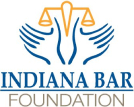
Planned out-of-hospital births, or “home births,” account for around only 1 percent of the four million births that occur in the U.S. every year, data from the Centers for Disease Control and Prevention indicates. Still, the same data shows that the number of home births in our country has been steadily rising since the early 2000s. Due, in part, to its large Amish population, Indiana actually ranks among the top 10 states for home births, according to news reports.
Women choose to give birth at home instead of in a hospital for many different reasons, including cultural and religious reasons. According to the Pacific Standard, the results of an online survey indicate that concerns about birth injuries also motivate many women to give birth at home. Researchers who conducted the study found that women “equated medical intervention with reduced safety” and trusted their bodies to give birth without interference.
Home Births Can Carry Significant Risks Resulting in Injury or Death
Despite the increasing popularity of planned home births, research has found that it can carry risks. For instance, a study published in the New England Journal of Medicine examined the outcomes of 80,000 births in Oregon over a two-year period. The researchers found that planned home births carried a higher risk of neonatal seizures and neonatal death than hospital births.
The American College of Obstetricians and Gynecologists (ACOG) takes the position that hospitals and accredited birth centers are “the safest settings” for giving birth, but it also recognizes that “each woman has the right to make a medically informed decision about delivery.” The ACOG notes that women should be informed that planned home births are associated with fewer maternal interventions than hospital births. However, they are also associated with “more than twofold increased risk of perinatal death” and a “threefold increased risk of neonatal seizures or serious neurologic dysfunction.”
ACOG cautions against women giving birth at home if there is more than one fetus, fetal malpresentation or a prior C-section delivery. If a woman chooses a home birth, the ACOG states that “critical” factors for achieving a favorable outcome include the availability of an obstetrician, certified nurse-midwife or a certified midwife or midwife whose education and licensure meet International Confederation of Midwives’ Global Standards for Midwifery Education. The availability of safe and timely transportation to a nearby hospital is also an important factor, according to the ACOG.
Who Could Be Held Liable If a Home Birth Goes Wrong?
Previously, in Indiana, only a licensed doctor or certified nurse-midwife could perform home births. However, in response to the home birth trend, Indiana has created a direct entry midwife certification program.
As the Fort Wayne Journal Gazette reports, a person can obtain certification and legally assist with home births if the person is at least age 21, meets educational and Certified Professional Midwife (CPM) requirements, carries sufficient liability insurance and has a “collaborating agreement” with a doctor. Through August 2018, the program had issued certification to 12 direct entry midwives in Indiana, the newspaper reports.
By requiring direct entry midwives to obtain certification and collaborate with doctors, the program should hopefully reduce the safety risks associated with home births. At the same time, by requiring liability insurance, the program gives mothers the ability to pursue compensation for medical expenses and other damages if a home birth goes wrong due to a midwife’s negligence.
It is important to point out that under I.C. 25-23.4-8-2 a doctor who enters into a “collaborating agreement” with a certified, insured direct entry midwife may not be held liable except in cases of “gross negligence or willful or wanton misconduct” in regards to that collaboration. With that said, the doctor could face potential liability if the doctor provided negligent direct care that caused harm.
Our Indianapolis Birth Injury Lawyer Can Help You
If you believe that medical negligence caused harm to you or your child during a planned home birth or hospital birth, you should consult with an experienced and compassionate medical malpractice attorney at the Law Office of Kelley J. Johnson as early as possible to learn about your legal rights and options. Call or reach us online today to discuss your case in a free and confidential consultation.










